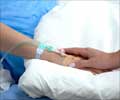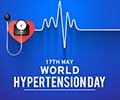Frequently Asked Questions
1. Do you need water before the blood test?You will typically be instructed to refrain from consuming solid foods and any liquids that contain food components (such as orange juice, milkshakes, etc.) or sugar (like cordials, juices, milky beverages, etc.). Essentially, during fasting for a blood test, you are limited to water only. We recommend that you drink an ample amount of water prior to your test.
2. Why should you eat before a blood test?
In reality, fasting has minimal impact on the outcomes of most blood tests. For instance, assessments of kidney, liver, and thyroid function, as well as blood counts, remain unaffected by fasting. However, fasting is necessary before commonly requested tests for glucose (blood sugar).
3. What is the maximum fasting time for a blood test?
Normally, you will undergo a fasting blood test in the morning after abstaining from food for a period of 10 to 12 hours (no less than 8 hours and no more than 16 hours).
4. What should you not do before a blood test?
If your appointment is scheduled for 8 a.m. and you're advised to fast for 8 hours, you are only allowed to consume water after midnight. For a 12-hour fast, it's important to refrain from eating or drinking after 8 p.m. the previous evening. Additionally, avoid smoking, chewing gum (even if it's sugarless), or engaging in exercise, as these activities can accelerate digestion, potentially affecting your test results.
5. Can I drink water before a blood test?
Juices, coffee, soda, and other beverages can enter your bloodstream and impact your results. However, you can drink water, which is beneficial before a blood test. It helps maintain sufficient fluid levels in your veins, making it easier to collect a blood sample.
6. What are the 3 main blood tests?
A blood test typically encompasses three primary assessments: a complete blood count, a metabolic panel, and a lipid panel. Each of these tests examines different aspects, which can be comprehended through a detailed analysis of the results.










